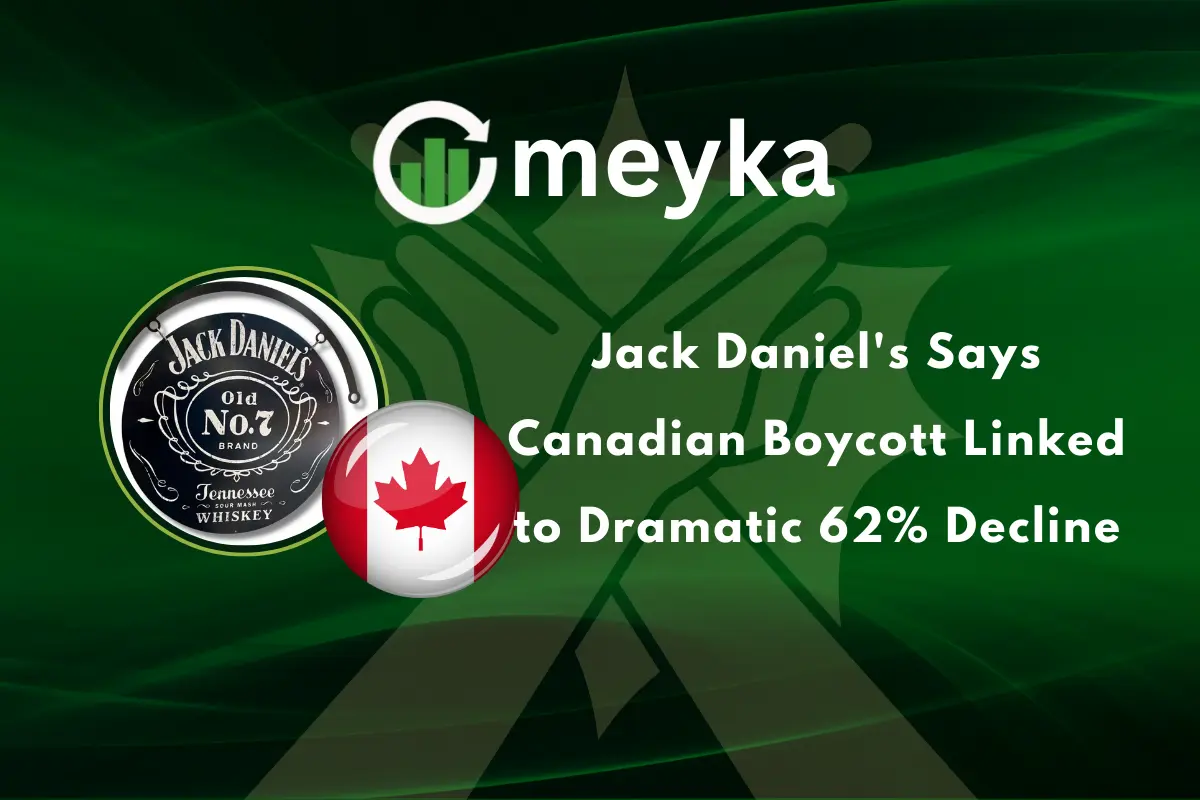Jack Daniel’s Says Canadian Boycott Linked to Dramatic 62% Decline
Jack Daniel’s is one of the most recognized whiskey brands in the world, but its sales have taken a dramatic hit in Canada. The company recently reported a 62% drop, and the reason points to a large-scale boycott. For years, Jack Daniel’s held a strong place in Canadian bars, restaurants, and homes. Now, that reputation faces one of its toughest tests.
Boycotts are not new in the business world, but this case stands out. A decline of this scale shows how quickly consumer behavior can shift when sentiment turns negative. We see that the Canadian market, once a reliable source of revenue, is now highlighting the fragile balance between brand image and public opinion.
As we look deeper into this story, we explore how the boycott began, why consumers joined in, and what this means for the whiskey industry. We also ask a bigger question: Can a brand like Jack Daniel’s recover when loyalty is shaken, or will this mark a lasting change in its Canadian journey?
Jack Daniel’s Says Canadian Boycott: Background
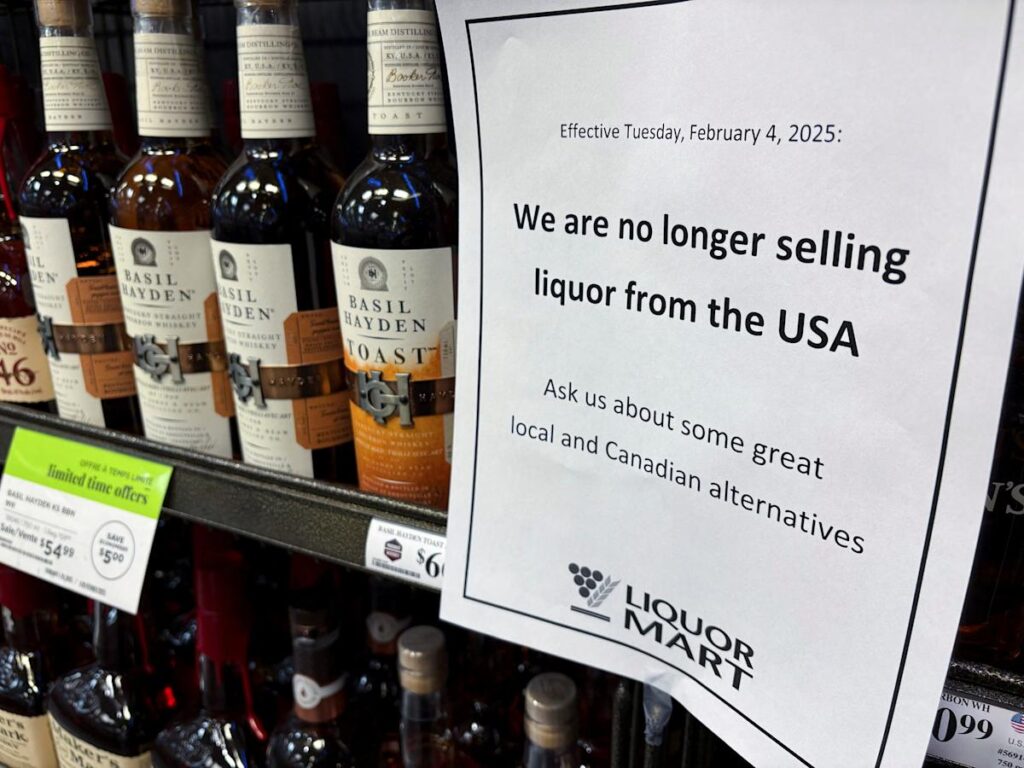
The backlash began after a wave of trade tensions between the United States and Canada. Provincial authorities and large retailers moved to stop buying U.S. alcohol. This action turned into a wider consumer-led boycott. The move targeted well-known American brands, including Jack Daniel’s. The company says the effect has been swift and deep.
Jack Daniel’s in Canada before the Shock
Jack Daniel’s once held a steady spot on Canadian shelves. Bars, restaurants, and home drinkers commonly chose it. For many years, Canada was a reliable export market for U.S. spirits. But political pressure changed buying habits fast. The switch from steady sales to steep declines caught distributors off guard.
The 62% Decline Explained
Brown-Forman, the maker of Jack Daniel’s, reported a 62% drop in Canadian sales in the most recent quarter. That fall is massive. It shows how a concentrated boycott can erase demand almost overnight. At the same time, Brown-Forman said global nets moved only slightly, underscoring that the pain was concentrated in Canada.
Why did the Boycott Hit so Hard?
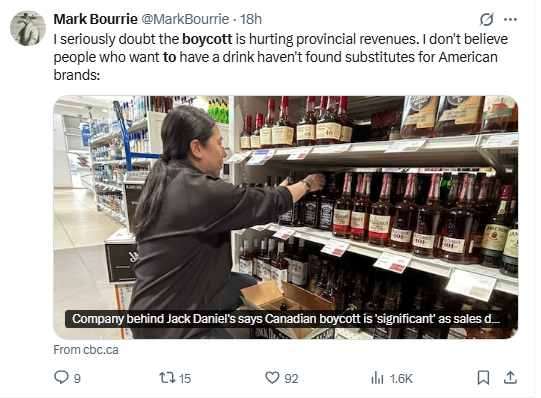
Several forces made the boycott effective. Provincial liquor boards control major buying decisions in Canada. When those boards pulled U.S. labels from lists, retail availability fell. Social media campaigns then amplified the message. Consumers moved to local and non-U.S. alternatives. The combined effect was less shelf space and far fewer sales.
Financial Ripple Effects for the Company
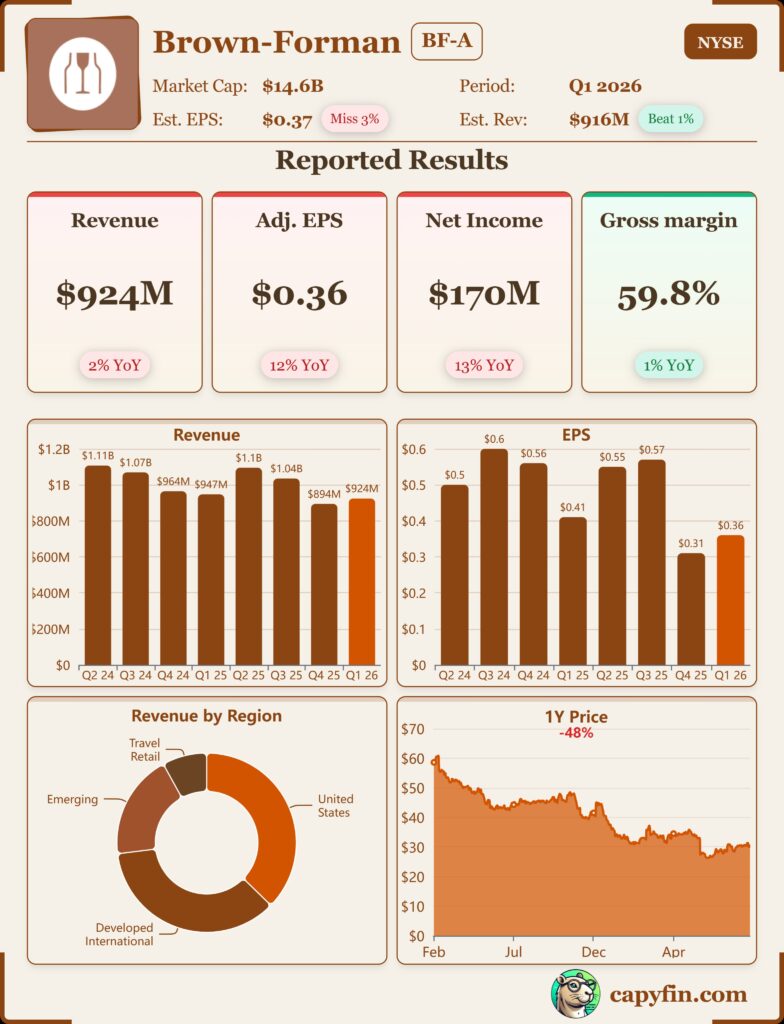
A 62% local drop does not equal a 62% hit to total company profit. Brown-Forman noted only a small decline in its total net sales for the quarter. Still, the Canadian loss matters for inventory planning and regional distributors. It also raises the cost of marketing and promotions aimed at trying to win back consumers.
How Rivals and Local Brands Gained Ground?
Retailers replaced pulled U.S. bottles with Canadian whiskies and imports from other countries. That opened shelf space for domestic distillers. Some Canadian brands reported higher sales and bigger local interest after the boycott began. Imports from Scotland and Ireland also saw a chance to capture shoppers who wanted to avoid U.S. labels. This shift highlights how trade disputes can create winners as well as losers.
Company Response and Public Statement
Brown-Forman’s leadership called the removal of U.S. alcohol from Canadian shelves “disproportionate.” Company executives argued that blocking store sales is a more damaging move than a tariff itself. The firm has tried to explain the business impact in earnings calls and press releases. At the same time, the company emphasized that Canada represents a smaller slice of total revenue, though the brand loss in the market is still a reputational blow.
Consumer Sentiment and Politics
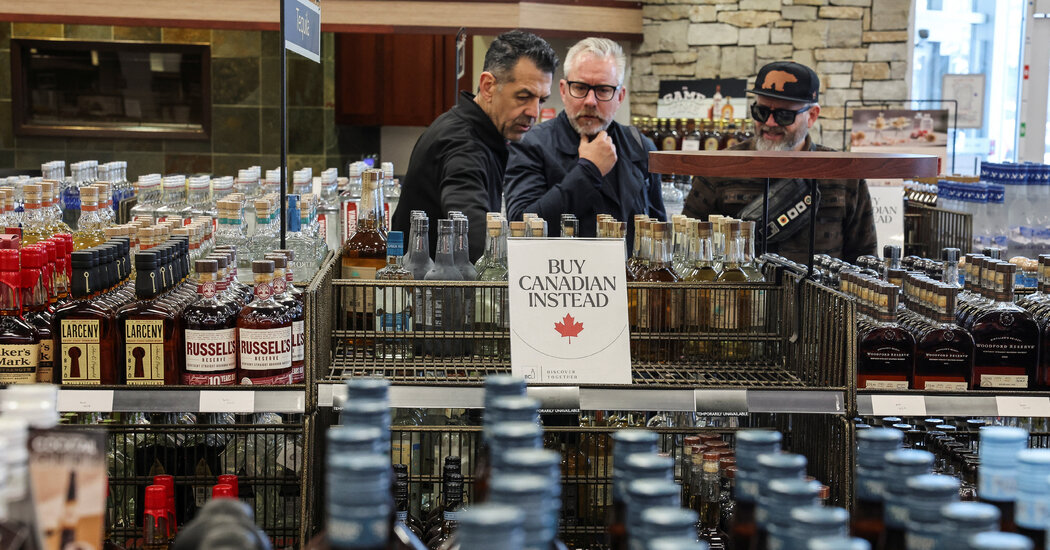
For many shoppers, the boycott was a political act. Anger over new tariffs and public rhetoric made American products an easy target. Campaigns urged consumers to “buy local” and to avoid U.S. goods as a matter of principle. That type of sentiment can last beyond a single news cycle. When choices are tied to identity, change is harder to reverse.
Broader Trade and Export Impact

Canada was a top export market for U.S. spirits and wine before these disputes. The alcohol industry has reported big drops in exports, with some categories plunging by more than 60% in value. The loss in exports adds pressure on smaller producers who counted on steady cross-border sales. The fallout is also a reminder of how political decisions can turn into economic pain for private companies.
Analyst Views and Likely Scenarios
Industry analysts say the boycott may be temporary but could become structural if political tensions persist. One near-term option for Brown-Forman is to shift promotional budgets to other markets and focus on digital direct-to-consumer efforts where allowed. Another is to build partnerships with Canadian distillers or retailers to improve local sentiment. Yet, reclaiming trust after a politicized boycott will take careful work and time.
Lessons for Other Brands
This episode shows that a strong brand name is not immune to politics. Retail access matters more than ever. When a product disappears from store shelves, sales evaporate quickly. Brands must watch geopolitics as closely as market trends. They also need clear crisis plans that include local engagement and rapid PR responses.
Outlook and Final Thoughts
If political tensions ease, some consumers may return to American brands. If tensions persist, the market is likely to favor local producers and non-U.S. imports for the foreseeable future. For now, the 62% drop in Canadian sales is a stark example of how trade disputes and consumer politics can significantly impact markets in a matter of weeks. The coming quarters will show whether Jack Daniel’s can reclaim its place on Canadian shelves or whether the boycott leaves a longer mark.
Frequently Asked Questions (FAQs)
Canada began boycotting Jack Daniel’s in 2018 after trade disputes with the U.S. Tariffs and political tension led provinces and consumers to avoid American alcohol brands.
No, Jack Daniel’s is not Canadian. It is an American whiskey brand made in Lynchburg, Tennessee, since 1866. It remains one of the world’s best-selling whiskeys.
Frank Sinatra called Jack Daniel’s “the nectar of the gods.” He often drank it on stage and even requested a bottle be placed in his coffin in 1998.
Canada makes up only a small share of Jack Daniel’s global sales. Before the 2018 boycott, reports showed that about 3-5% of total sales came from Canada.
Disclaimer:
This is for informational purposes only and does not constitute financial advice. Always do your research.
